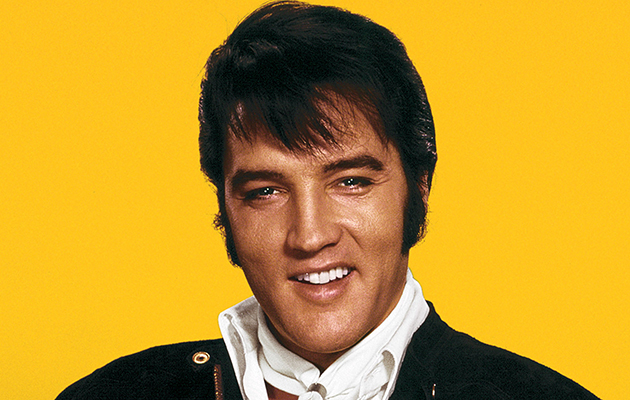Over the next two nights, there was little sign this interlude was significant. But on June 7, the floodgates opened and six country songs poured out of Elvis. Eddy Arnold’s 1954 hit “I Really Don’t Want to Know”, another version of Bob Wills’ “Faded Love”, Ernest Tubb’s “Tomorrow Never Comes”, Ray Price’s “Make The World Go Away”, Willie Nelson’s “Funny How Time Slips Away” and a riotous take on Charlie Rich’s 1965 hit, “I Washed My Hands In Muddy Water”. “He puts this blues phrasing on ‘I Really Don’t Want to Know’ that makes it wonderful,” Jorgensen says, “and then the whole spirit is created.”
Presley had effectively hijacked his own session, using it to pay tribute to many of his favourite songs and formative musical idols. Eddy Arnold – pioneer of the ‘Nashville sound’ – was “definitely a hero”, Jorgensen explains, and points out that Arnold was there in the photo commemorating Elvis’ signing to RCA. Grand Ole Opry patriarch Ernest Tubb was, Jorgensen says, a “mighty man” to Elvis: “‘Tomorrow Never Comes’ is a difficult song for Elvis to sing, you can hear him struggling all the way through the takes. But it’s an Ernest Tubb song. And Elvis says, ‘If I can’t sing it all the way through, I’m not going to do it.’” Meanwhile, Texan swing king Bob Wills personally also encouraged the young Elvis in 1954. Elsewhere, Charlie Rich, Presley’s near-contemporary at Sun, and Willie Nelson complete the night’s cross-section of country songs. “There’s no talking, mostly first takes, one right after another,” reveals Jorgensen. “I wouldn’t say the excitement is building that night. What happens is, it flows so naturally. It’s more like playing music than recording it.”
“There was some plan,” nods Putnam. “I think he and Felton had considered doing a country LP. But it was a total surprise to us.” At the session, Elvis would try to get the songs in one take, and the band would find ways of stalling him while Putnam or Briggs scrawled down arrangements in pencil. The songs, at least, they knew well: “A lot of stuff we’d played on the original sessions,” laughs Briggs.
“I thought he should have done it a long time before that,” says Charlie McCoy. “It’s so natural for him. OK, he grew up doing R’n’B, but his roots are as country as anything else.”
“But,” Burton emphasises, “we didn’t treat ’em like country.”
“We didn’t go for the normal country arrangement,” Putnam confirms. “We played them in the way that came naturally. Black music had influenced me heavier than anything, after I became a musician. And I needed to make the bassline more interesting than a country bassline. Jerry Carrigan and I had come up from Muscle Shoals, and you’ll hear that R’n’B influence in songs like ‘Make The World Go Away’ – a little more soul on the bass and drums.”
Burton: “When I got out the dobro, for ‘Funny How Time Slips Away’, Elvis said, ‘Come on, baby. Come on…’ You know like on ‘Make The World Go Away’, Elvis’ vocal on that [croons delicately] and then the dobro thing really fit that song, and it was different to what you were expecting. And ‘I Washed My Hands In Muddy Water’, I had a little mud on my strings to get that scratchy sound. Ooh, and ‘Faded Love’, that was raunchy. Yeah, man. It’s one of my favourite albums ever.”
The last country song they recorded on the June 7 sessions, “I Washed My Hands In Muddy Water”, shows the kind of music they were creating here. A tale of a Tennessee outlaw who can’t wash himself clean of his crimes, it’s rendered here as exhilarating rock’n’roll, driven by McCoy’s blasting harmonica riffs and Briggs’ urgent piano vamping, with Elvis himself giving full vent to his vocal abilities. Says Putnam: “He would dive down here and he’d soar up there, and he’d pant into the mic. Elvis made all the primal sounds that human beings exhibit, from blissful love to a primal scream, in one song.”



